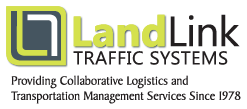The massive cargo ship Ever Given has been freed from the shores of the Suez Canal after 6 days of complete traffic blockage. Over the weekend, 14 tugboats pulled and pushed the Ever Given at high tide to try to dislodge it and were able to move the ship "30 degrees from left and right".
Then on Monday morning, after several reports that the ship had been partially refloated, the Suez Canal Authority (SCA) issued a statement saying that the Ever Given had been "successfully refloated".
The SCA said it would resume maneuvers later on Monday high tide, allowing for the full restoration of the vessel's direction so it is positioned in the middle of the navigable waterway.
Then at 13:05 GMT the Ever Given was finally fully freed. However, it could take a while to clear the backlog of ships waiting to use the canal. A backlog of about 450 ships are still waiting to transit the canal. It's going to be a lengthy process clearing that backlog.
The Costs Are Still Being Tallied
The cost of the vessel stranding is going to be mind boggling. About 12% of global trade, around one million barrels of oil and roughly 8% of liquefied natural gas pass through the canal each day.
Looking at the bigger picture, German insurer Allianz said on Friday its analysis showed the blockage could cost global trade between $6 billion to $10 billion a week and reduce annual trade growth by 0.2 to 0.4 percentage points. But it’s difficult to put a more precise figure on it because of the vast range of goods transported by sea. On a shipment of waste paper, for example, delays are inconsequential; for high-end electronics timed to arrive for a launch, they’re crippling.
A Significant Impact On Global Trade
This event will be felt around the world. The 120-mile-long artificial waterway, which connects the Indian Ocean with the Red Sea by way of the Mediterranean, accounts for 12% of global trade and transits between 5% and 10% of the world’s seaborne oil.
The impact on freight costs is likely to be more pronounced. Almost a third of the world’s seaborne freight passes through the Suez Canal from food to farming equipment, car parts to carpets. And the cost of delays will eventually be passed on to the consumer. Even before this week’s incident, freight shipping rates had been at an unprecedented high. The COVID-19 pandemic stranded thousands of mariners at sea, held up port operations, and even led to a slowdown in the production of freight containers. Meanwhile, the balance of trade shifted increasingly to Asia, and global lockdowns prompted people with disposable income to spend more money on imported goods.
The short-term impact of this grounding will be further pressure on higher freight rates, as the waiting ships and containers compound the shortage of equipment. As for the long term, we’ll have to see how it plays out.
If you need expert help in managing your supply chain through this expansive delay, contact us @ www.Land-Link.com.
Stay Safe Everyone.
To stay up to date on these and other Logistics topics subscribe to our blog @ http://www.Land-Link.com/blog.
Author
Michael Gaughan
Technology Officer
Land Link Traffic Systems


 Land-Link, a well respected professional organization, has been providing its clients with effective transportation and logistics solutions since 1978.
Land-Link, a well respected professional organization, has been providing its clients with effective transportation and logistics solutions since 1978.

